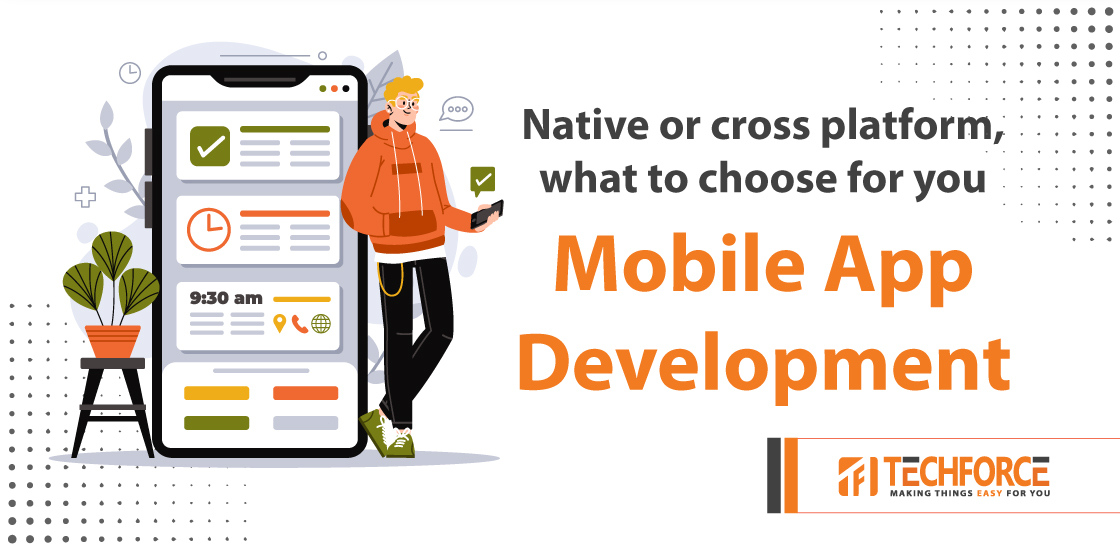
The universe of Mobile application development is vast and rapidly growing in the current market. However, it’s very difficult to settle on which mobile application development method we need to choose for a positive impact on business everywhere around the globe.
When developing a mobile application, there are many factors to contemplate. It’s going to sound obvious, but it’s important to decide what platform your application is developed for. Does one want your app to be developed for iPhone or Android users? Or should it be available to any or all mobile application users regardless of the platform? If the latter is the case, you will hire an app development company that focuses on specializes in cross-platform capabilities or pay for multiple native apps to be developed for each platform.
The decision between the two has an impact on price, time, and functionality in the long run. In this article, we’ll examine both strategies and weigh their advantages and disadvantages.
When you use the word “Native Mobile Application Development” Which refers to assembling your application exclusively for a single platform like Android Native Mobile Application & IOS Native Mobile Application. Once you choose native development, you would like to use a specific programing language and tool which are compatible with a specific OS like in Android we need to use Kotlin or Java and In IOS we need to use Objective-C or Swift.
However Native apps provide seamless performance and user experience because they have directly interacted with native packages. When creating a native app, developers can use more complex functions since they have access to all device capabilities. This results in more reliable, secure, high-performing solutions, and flexibility to the environment and usage quirks.
Now let’s see what’s the benefits and downsides of native mobile application development.
Cross-platform apps are riding the recognition of mobile application development. There are obvious benefits to cross-platform app development which help bring down costs since the work doesn’t need to be repeated for a large number of platforms, and in the case of web apps, it also helps significantly speed up the development work.
Flutter is the most widely used cross-platform mobile framework globally, according to data. Flutter is the second-most popular mobile framework for cross-platform development, used by 42% of software developers compared to React Native’s 38% use.
Now let’s see what’s the benefits and drawbacks of Cross-platform mobile application development.
Considering which approach we would like to decide on for Mobile application development may be a common Headache. So, I will explain to you how you choose your mobile application development approach with 4 key factors.
If you’re building an app that’s just displaying information fetched from the network with simple UI/UX, cross-platform development is an honest choice. However, if it involves heavy processing or requires access to low-level APIs like Bluetooth or OS hardware components, you’ll want to go with the native development approach.
Native development produces apps with high performance, but it can be costly to build. If you have a limited budget to work on, cross-platform development is the ideal choice. You’ll save around 25%-30% as only a single codebase is created for an app that works on both Android and iOS. So, if you have budget constraints, we must follow a cross-platform approach rather than native development.
If you’re looking for stunning visuals and a better user experience, the answer lies in native development. Developers have access to UI/UX components easily together with more customization when developing in an exceedingly native environment. Choosing cross-platform will greatly limit the UI/UX element of the app.
In some projects, the client requires IOS and Android versions both with minimal timeframe, this is often where you’ll want to think about cross-platform development. You don’t have to work on two versions of the app. Instead, only one codebase of development is achieved for Android and iOS apps.
Still, Stuck on How to Choose Native or Cross-platform Development?
Your decision incorporates a huge implication of the cost, time, and how the users will respond to the app. Take all the above-mentioned key factors into consideration before making a choice. If you’re still stuck, Techforce will assist you and guide you in a very good way to do your business with our highly qualified team.
Get in touch for a free consultation.







Last year in 2022, the E-commerce industry grew around two times compared...
Surendra Jaiswal
24 Apr 2023

In today’s technology-driven world, you should meet consumer desires by...
Sagar Shah
28 Mar 2023Hello!
Send us your basic project requirements, one of our Team managers will evaluate your requirement and get back with you with a formal proposal.